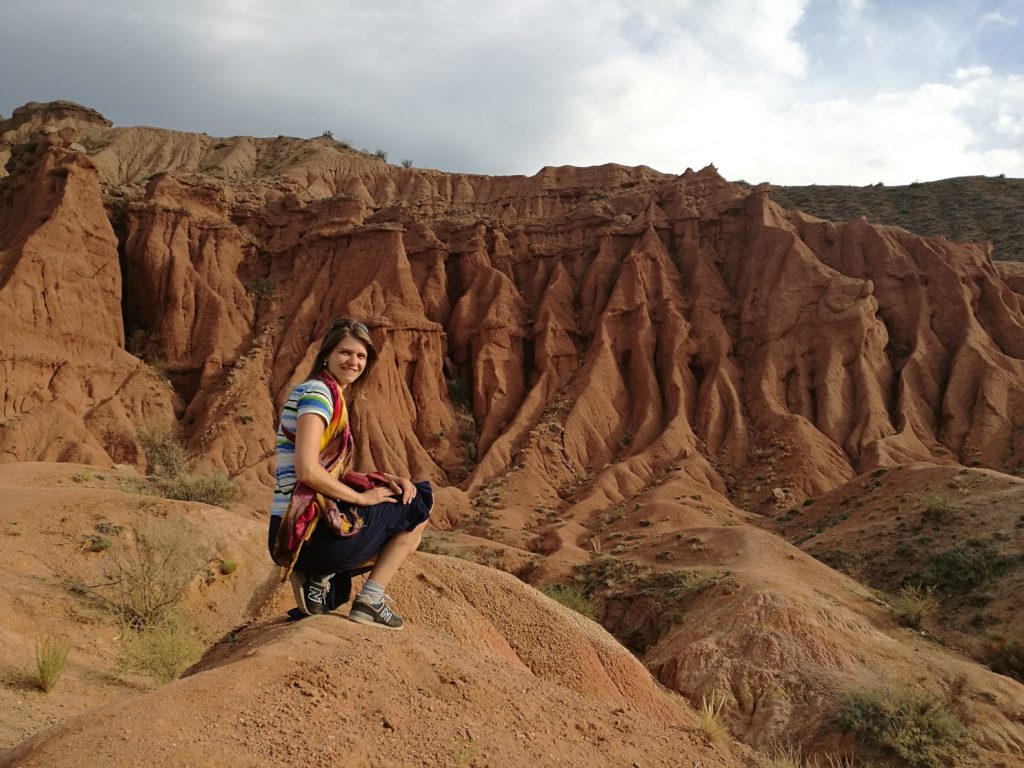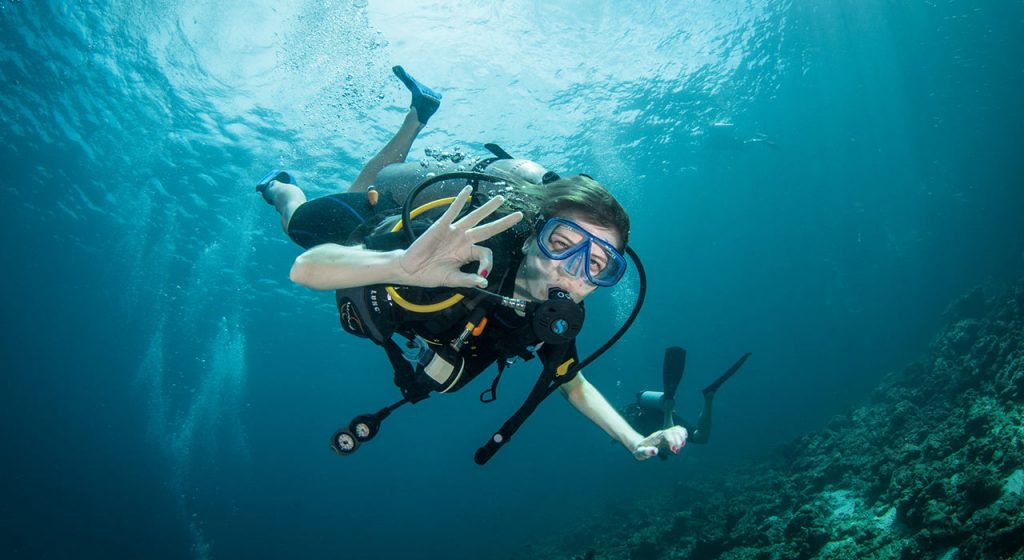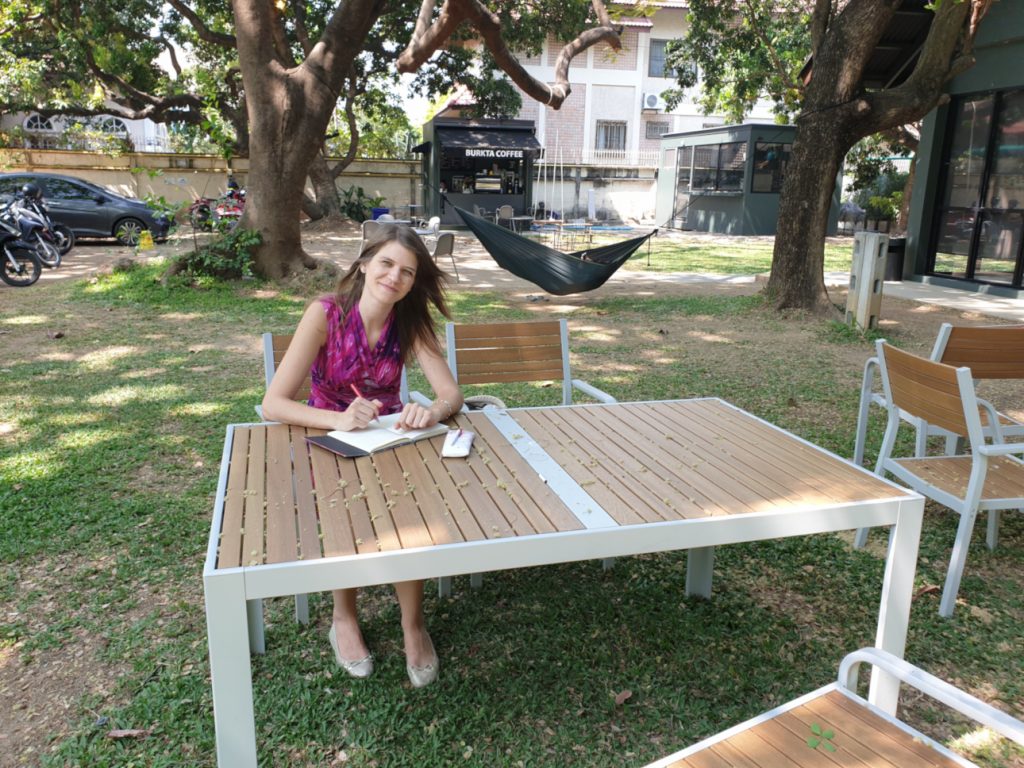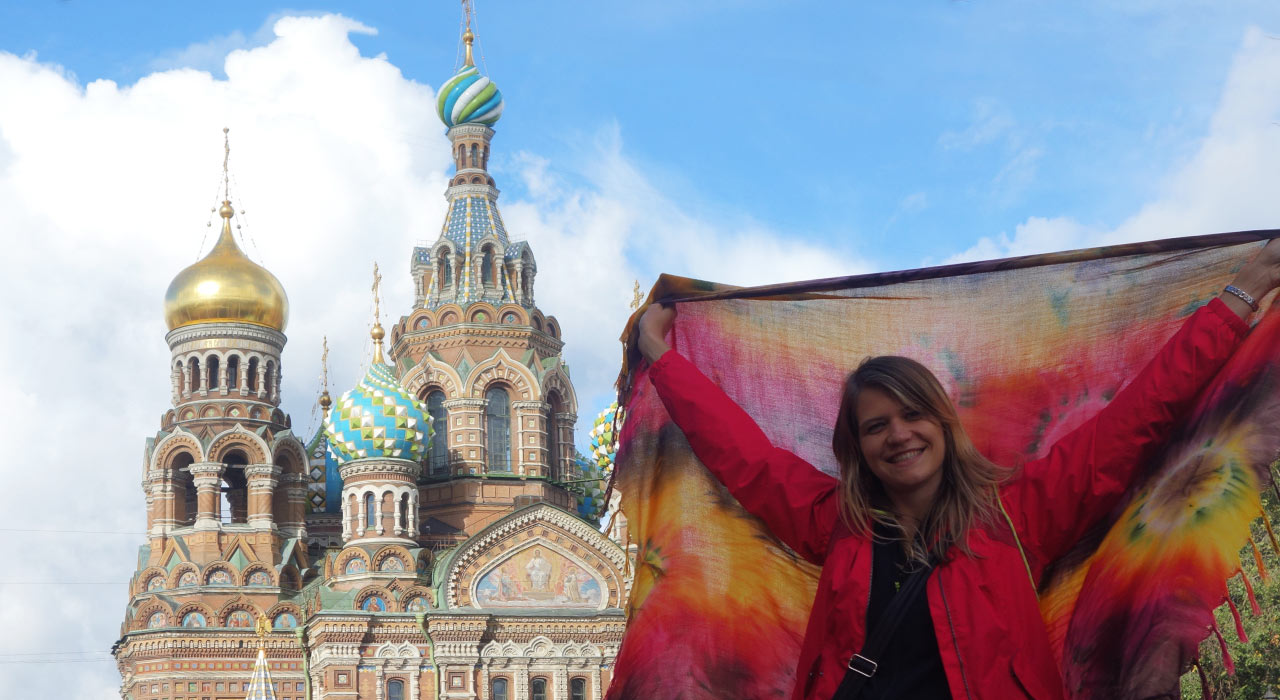Language Mentors #3: TED Speaker Lýdia Machová Shares How She Learned 9 Languages
“People expect to reach a point in their learning when they’ll be comfortable speaking. They put off their speaking until that moment arrives. It never does.” – Lýdia Machová
What a thrill to have interviewed Lýdia Machová for our Language Mentors series!
Without ever living abroad or in a multilingual environment, Lýdia has learned nine languages. She speaks Slovak, English, German, Spanish, French, Polish, Esperanto, Russian and Swahili.
Whew! That’s a whole lot of language learning.
She maintains seven of them at a fluent level, and she usually learns a new language every two years. After meeting dozens of polyglots, she now shares the principles of language learning with the world as a language mentor.
Lýdia organised the world's biggest polyglot event, the Polyglot Gathering in Bratislava, Slovakia, in 2017 and 2018. She holds a PhD in translation. And she worked as a professional conference interpreter. Her clients have included Tony Robbins and Slovakia's former prime minister and first lady.
She is based in Slovakia but travels often on her mission to help people learn languages in their own ideal way. Lýdia's TED talk about the secrets of learning a new language hit one million views after just five days of being online.
You can find her on her website, where she shares language learning tips with her readers.

Language Mentors: Learn a New Language in 90 Days
Language Mentors is our regular feature where we interview polyglots, language teachers, language learners and even folks from outside the field of language learning. We’re getting straight to the point, asking for their top tips on language acquisition, steadfast motivation, and rapid learning.
We want to give you the inside scoop on what it takes to learn a new language, fast (in as little as 90 days).
We’ve actually seen hundreds of people learn a new language to conversational level in just 90 days. You can do it too by putting what you learn from our Language Mentors into practice.
And if you need extra support, then join us in Add1 (now the Fluent in 3 Months Challenge) — where you’ll make lots of new friends who share your goal of learning a new language fast (plus you’ll have a 15 minute conversation in your new language after 90 days — we guarantee it).
Read on to learn some of Lýdia’s language learning strategies. And get to know some interesting tidbits about an inspiring polyglot at the same time.
What Are the Top Three Activities You Would Advise to Have a 15 Minute Conversation in a New Language After 90 Days?
- Collect vocabulary that is relevant to YOU. Learn to describe your life, work, dreams, past experiences. There’s no use in learning all types of fruits and vegetable. Unless you own a vegetable stand!
- Start speaking to yourself first. Self-talk is a great way of practising speaking and overcoming the fear of embarrassing ourselves. On top of that, you find the relevant vocabulary that you need to talk about your life. Whenever you miss a word that you need, look it up. Also, have regular sessions with a tutor who’ll make sure you’re not “inventing” the grammar.
- Listen a lot. Like, a LOT. Make it a habit to put on your headphones whenever you leave home. And make sure you have dozens of simple recordings on it. Especially ones that you worked with previously and which you understand.
What Are Your Top Three Favorite Study Tools When You First Start Learning a Language?
- I always start with a book, such as Teach Yourself, Colloquial or Assimil. I work through it using my favourite back-translation method. I translate the texts into my mother tongue using a notebook. Then I translate them back out loud as many times as needed to say the whole text fluently in the target language.
- If I’m learning a language that is available in the Michel Thomas or Pimsleur method, I start with those. They are great resources to get acquainted with the language.
- I make sure I have a beautiful notebook to write something in.
Vocabulary. For example using the Goldlist method. I am a freak when it comes to notebooks with pretty covers. It is very important to me to have study tools that I enjoy looking at and using.
What Are Your Top Three Favorite Memories of a Language Win?
- I love the moment when I understand a written text for the first time. It may be a short, simple text. But knowing that a few weeks ago I did not understand a word. And now here I am actually knowing what the text says, that is quite exciting.
- Another milestone is telling an anecdote or a joke in the new language. (One that people actually laugh at. Self-talk doesn’t count!) For me, this means I’m getting to B2 and it feels amazing. Telling a joke requires fluency, a wider vocabulary, and self-confidence in the language. A combination that only more advanced learners have.
- I totally love the moment when I know I have arrived at a level of comfortable fluency. This usually happens when I’m out with friends, native speakers of the new language, and we communicate effortlessly and fluently. My ability to just exist in the new language is free and spontaneous. It is a highly addictive feeling and the reason why I do this every two years with a new language.

What Are the Top Three Roadblocks You See Learners Face?
- Speaking is the biggest one, obviously. People expect to reach a point in their learning when they’ll be comfortable speaking. They put off their speaking until that moment arrives. It never does. The only way to reach comfort and fluency in speaking is by long hours of speaking practice. It doesn’t necessarily need to be from day one (this depends on the personality type) but it is always sooner than you feel comfortable.
- Realizing there are quite a few words to learn in the new language. This happens to every language learner at some point, usually at about the A2 level. At first you were really excited about making progress every day. After a few weeks, you realize you still don’t understand nearly anything in authentic texts or videos. You realize how many words you need to learn, one by one. That is a scary moment. What helps most is the experience of having learnt another language previously. You know you’ve done it once, you’ll manage again. Just keep on going.
- Grammar can get a bit scary too. I have had these moments in all my languages. Whether it was the subjunctive in Spanish. The separable and inseparable verbs in German. The pronunciation and spelling in French. The idioms in English. The verbs of motion in Polish. The irregularities in declination in Russian. Or the noun classes in Swahili. At some point, you think you can never learn all those forms. You can't imagine remembering all the rules or learning all the exceptions by heart. Yet, the more you practise, the more natural the grammar becomes. Especially with lots of listening input. And suddenly, the right word somehow fits in the sentence.
What Are Your Top Three Books in a Foreign Language?
Always non-fiction books. Because non-fiction is so much easier to understand than any work of fiction!
If I can get a self-help book related to one of these topics, that’s going to be my number one book to read.
- Self-improvement
- Relationships
- Time management
- Practical tips about everyday life
Some of my favorites are The Miracle Morning by Hal Elrod, anything by Brian Tracy and Men Are From Mars, Women Are From Venus by John Gray.
I have read The Alchemyst and The Little Prince in several languages, as well as Animal Farm. They are fiction stories, but very simple, nice, and enriching at the same time.
Harry Potter was my breakthrough book when learning English and Spanish. When I was a child, I read all the books in the series several times in Slovak. So I was able to follow them even in languages I was just beginning to learn. I knew the content well.
In this way, any book that you love and know very well will be a great book to start reading in. Even if it is fiction. Even if it is a fantasy fiction book that includes words such as pumpkin juice or Quidditch.
What Are Your Favorite Relaxing Study Habits for Laid Back Days?
Honestly, if I have laid back days, I don’t learn anything. I either have a plan and follow it every day or I have a holiday from learning. These holidays often take several weeks. But to keep in touch with my previous languages, I like to watch TV series. Netflix is a wonderful source of those, for any language.

What Are Your Top Three Favorite TV Shows for Practicing a Language?
- For language purposes, I like watching simple series about everyday life. For example, I enjoy shows meant for women, such as Desperate Housewives and Sex and the City. They include a lot of vocabulary about everyday life. Whatever happens in one of the episodes, is mentioned many times, which is great for revision. I cross the line at soap operas though, I can’t stand a plot which is too simple, and situations which are too much drama.
- Friends is a wonderful show if you can get it in your language. Especially if you’re a big Friends fan like me and you know each joke inside out.
- A few more tips for individual languages: When learning Russian, I really enjoyed Кухня. My favourite Polish one is Czas honoru. And I quite liked Chicas del Cable (the first season) and Juana Inés in Spanish.
What Has Been the Biggest Surprise That Learning a New Language Gave You?
I had a 30-minute conversation with a deaf homeless man in Poland using sign language. I was using the Slovak one and he was using the Polish one. (They are different, but they share a lot of signs.)
We were able to understand each other and that was one of the most amazing moments for me. I realized that all the effort I put into learning a language was totally worth it.
What Are Your Top Three Favorite Language Learning Rituals?
- I love learning in the morning. I wake up, prepare a nice cup of tea, go back to bed, put my learning materials around me and start my current routine.
- I enjoy using the Goldlist method in a nice environment, such as a garden or a terrace, especially if it’s outside. I sometimes make it even more cozy by getting a bowl of strawberries or some cashew nuts to complement my study. And it’s nutritious food for my memory.
- When I discover a new podcast I like, it becomes a part of my everyday life. Several times a day! Whenever I walk or do some chores, I’ll put my headphones on and listen.
I can get many hours of listening practise within a few days or weeks, and it doesn’t even feel like learning.
What about You?
Which of Lýdia’s tips resonate most with you? We’d love to hear about it in the comments section. And to our Add1 participants, best of luck on your language adventure!
Want to learn a new language in 90 days? Come join us in Add1.
A big thank you for Lýdia for sharing her thoughts and winning strategies with us.
To learn more about Lýdia, you can visit her Facebook page or her website.



Social